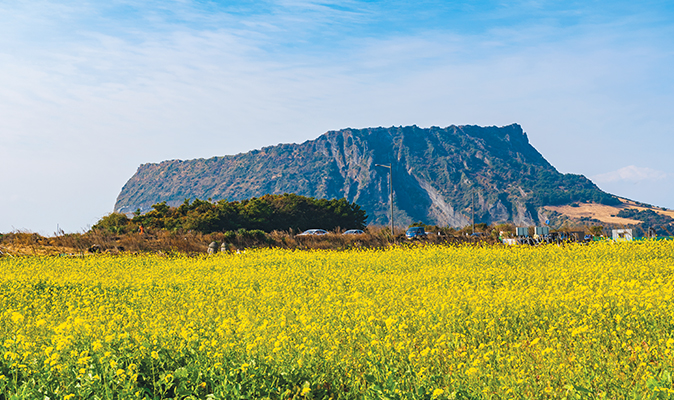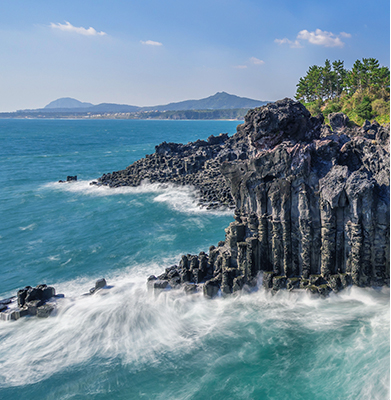Bluebird Premium Partner Summit
Engage the Vision
- Date
- 15 Oct (Tue) ~ 17 Oct (Thu), 2019
- Venue
- Hidden Cliff Hotel, Jeju Island, S. Korea
Travel Information
| Timezone | KST (GMT+9) |
|---|---|
| Currency | KRW (Won) |
| Electric Outlet | 220V |
| Tour information | https://www.visitjeju.net/kr/ |
- Jeju Island
- Jeju is a national biosphere conservation area in 2002, a World Natural Heritage in 2007, and a 2010 World Geological Park Certification. It is the only area in the world that has achieved at the same time. In addition, Jeju has all the themes of the world's natural landscape (islands, volcanoes, waterfalls, beaches, national parks, caves and forests).


Estimated Temperature


- As Jeju Island is located to the east of Eurasia, its continental and oceanic climates are clearly distinguishable depending on the weather. In the winter, the northwest monsoon can result in severe temperature differences, while high temperatures and humidity of the North Pacific air mass in the summer leads to intense rain storms. The yearly average temperature for the Seogwipo region is 16.2℃, while it is 15.5℃ for Jeju City and the alpine regions, the smallest annual range in the country. Furthermore, the presence of Hallasan Mountain means that Seogwipo-City is 0.5∼1.5℃ cooler than Jeju-City in the summer and warmer than Jeju-City in the winter.
